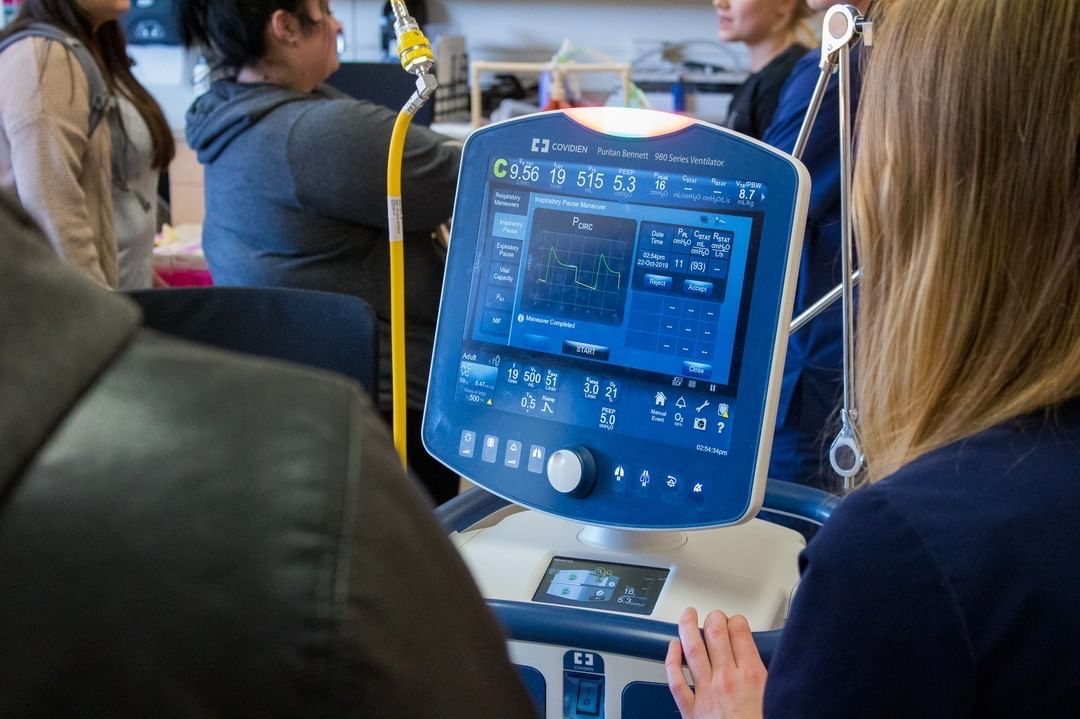
Boise State’s Department of Respiratory Care is providing educational support, offering patient consultations and lending equipment – including several state-of-the-art ventilators – to local healthcare systems to combat potential shortages due to COVID-19. The equipment will be evaluated by the hospitals’ biomedical departments prior to patient care use. Partnering hospitals include Saint Alphonsus Regional Medical Center, St. Luke’s Regional Medical Center, Veteran’s Administration Medical Center, West Valley Regional Medical Center and Vibra Hospital of Boise.
“We are extremely fortunate to have a supportive relationship with these institutions and systems,” said Lonny Ashworth, a professor and director of respiratory care research. “Many of the executives within the hospitals and businesses are graduates of the Boise State Respiratory Care Program.”
Department of Respiratory Care faculty routinely consult with respiratory care practitioners and physicians locally, regionally and in Japan by answering questions and providing assistance to mechanically ventilated patients. Faculty also provide instructional videos on mechanical ventilators that the facilities may not use regularly in order to ensure safe and effective use of these devices. Faculty recently produced a video demonstrating how to ventilate two or more patients synchronously with one ventilator, should the need arise, as it has in other areas of the country and world.
There is a growing concern that a shortage of ventilators may occur in the Treasure Valley. Ventilators are used to support the vital function of breathing for patients with respiratory failure. Respiratory care practitioners, often referred to as respiratory therapists, oversee ventilators and specialize in the management of complex pulmonary disease. Over the last 40 years, Boise State’s Respiratory Care Program has educated a large percentage of the respiratory care practitioners in the Treasure Valley, as well as department managers, clinical educators and “bedside” respiratory care practitioners.
However, like the shortage of ventilators, there is a current shortage of respiratory therapists to run those ventilators. The impact of these shortages on patient outcomes has the potential to be catastrophic. Given the trajectory of the pandemic and the gaps in response, the need for skilled respiratory therapists will only grow.
“Boise State’s Respiratory Care Program is recognized as one of the top programs in the country,” said Joe Coyle, interim chair of the Department of Respiratory Care. “We have an extremely successful entry level program that provides high-quality respiratory therapists for the Treasure Valley.”
Boise State graduates have been recruited by major tertiary care centers, such as Massachusetts General Hospital, University of Virginia, Duke University Medical Center and Seattle Children’s, where they become essential parts of interdisciplinary healthcare teams on the front lines of crises like COVID-19.